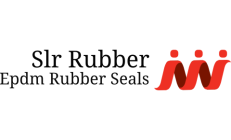Industrial seals play a crucial role in a wide range of manufacturing and industrial applications by preventing the leakage of fluids or gases, protecting equipment from contamination, and ensuring efficient operation.
Industrial seals play a crucial role in a wide range of manufacturing and industrial applications by preventing the leakage of fluids or gases, protecting equipment from contamination, and ensuring efficient operation. These seals are designed to create a barrier between different components, such as rotating shafts and housing, to maintain the integrity of the enclosed system. The diversity of industrial seals is extensive, encompassing various types, materials, and applications, each tailored to specific operating conditions.
One of the primary functions of industrial seals is to prevent the escape or ingress of liquids and gases in machinery. This is particularly critical in environments where precision and reliability are paramount, such as in the manufacturing of automotive components, aerospace systems, chemical processing plants, and other industrial settings. The failure of seals can lead to equipment malfunctions, downtime, and increased maintenance costs, making the selection of appropriate seals a crucial aspect of industrial design and engineering.
The types of industrial seals vary widely, ranging from simple O-rings and gaskets to more complex rotary shaft seals, hydraulic seals, and labyrinth seals. Each type is engineered to address specific challenges related to pressure, temperature, speed, and the nature of the substances being sealed. For example, hydraulic seals are designed to withstand high-pressure environments commonly found in hydraulic systems, while labyrinth seals are effective in preventing the ingress of contaminants in rotating equipment.
Material selection is another critical aspect of industrial seal design. Seals can be made from a variety of materials, including rubber, silicone, polyurethane, and various types of synthetic and natural elastomers. The choice of material depends on factors such as chemical compatibility, temperature resistance, and the specific demands of the application.
The installation and maintenance of industrial seals also play a pivotal role in their overall effectiveness. Proper installation techniques, regular inspection, and routine maintenance are essential to ensure the longevity and reliability of seals in industrial settings. This involves monitoring wear and tear, checking for leaks, and replacing seals as needed to prevent unscheduled downtime and extend the lifespan of equipment.
In summary, industrial seals are indispensable components in numerous industrial applications, providing a crucial function in maintaining the efficiency and reliability of machinery. Their diverse range, material considerations, and critical role in preventing leaks make them a key focus in the design, engineering, and maintenance of industrial systems across various sectors.

